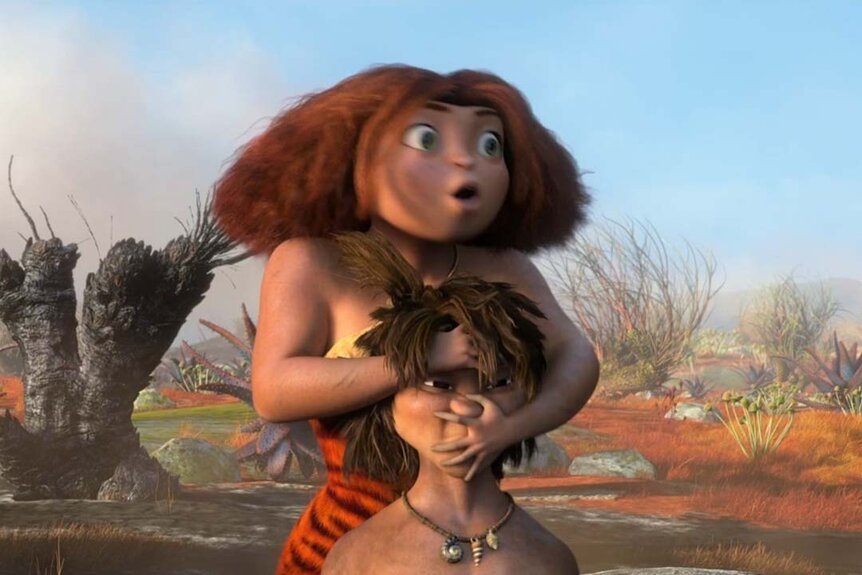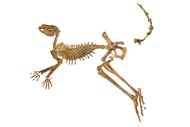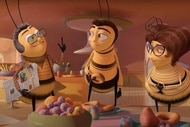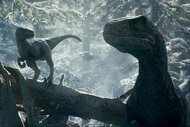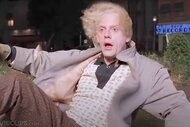Create a free profile to get unlimited access to exclusive videos, sweepstakes, and more!
We Might Have "Caught" Depression from Interbreeding with Denisovans Thousands of Years Ago
Talk about a generational curse.
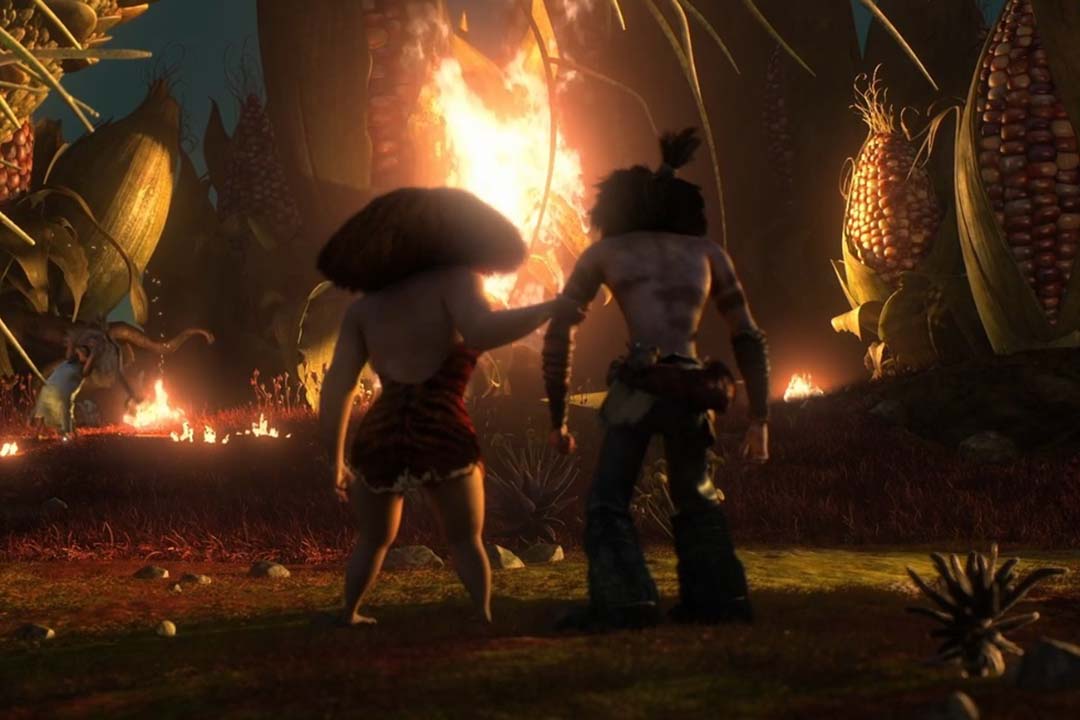
It should go without saying, but The Croods (streaming now on Peacock) is not a textbook. It was never intended to be representative of humanity’s actual history, but it managed to get a few things right anyway. The story centers on a family of primitive humans with the features of Neanderthals as they leave home and encounter a lone Homo sapien named Guy.
Eep, a teenage Neanderthal played by Emma Stone, falls for Guy (Ryan Reynolds) and the two of them begin a tenuous relationship under the eagle-eyed gaze of Eep’s father, Grug (Nicolas Cage). Whatever liberties the movie took with reality, it got that much correct. Archaic Homo sapiens and other human subspecies were plenty happy to intermingle socially and sexually whenever the opportunity presented itself. In fact, it’s likely that your own genome is at least a few percent pilfered DNA and some of those genes might contribute to mental illness.
Denisovan Mutations for Metabolism and Madness?
We’ve all had a relationship or two that left us feeling a little untethered from reality, but some of our species’ ancient dalliances may have left us with eons of psychological baggage that we're still dealing with today. The generally accepted sequence of events begins with our ancestors migrating out of Africa roughly 60,000 years ago, but the truth is that different groups of primitive humans (some of whom had more in common with us than others) spread out of Africa at different times and later came back into contact with one another. As populations moved into new environments and became separated for extended periods, they differentiated into a wide array of human subspecies including Neanderthals, Denisovans, and of course modern Homo sapiens.
RELATED: Surprising Things The Croods got Right About Ancient Human History
Those people who remained in Africa for the duration never had an opportunity to remix with their far flung, slightly differentiated hominid cousins, and so they lack any genetic contribution from those groups. Pretty much everyone else, the world over, has at least a few percent Neanderthal and/or Denisovan DNA. Denisovans are a relatively new addition to the human story, having only been discovered in the last couple of decades, and they're the subspecies we're concerned with today.
As far as we can tell from the handful of teeth and scattered bones recovered from caves, Denisovans are an extinct subspecies of Archaic humans, closely related to Neanderthals, which lived in and around Asia and Siberia until about 30,000 years ago. The relatively cold climate, especially when compared with our ancestral African home, led to Denisovan adaptations making them better equipped for low temperatures and harsh winters. And when archaic Homo sapiens made it to the region, they were all too happy to take advantage of those mutations through a little interbreeding.
Scientists have suspected for a while that Homo sapiens were able to move into more polar regions with a little genetic help from Denisovans, but a new study published in the journal PLOS Genetics suggests the same mutations may have led to increased mental illness down the line. The more we learn about our own genome and the way that genes are expressed, the more we realize that evolution is often a series of trade-offs with benefits and costs. In this case, better temperature regulation might have cost us a fraction of our happiness.
RELATED: Interbreeding with Denisovans helped us live in high places
The study focused on the ways our brains and bodies transport and use zinc. Scientists identified inherited Denisovan traits in modern humans which likely make them better at dealing with the cold. The mutation changes the way zinc is transported in the cells and alters the body’s metabolism to give it greater internal temperature control. That’s a good thing if you want to live in mountain caves at high latitudes but nothing is free, not even evolution.
Zinc is also used in a number of important neurological functions and the same mutation that improves cold weather metabolism appears to have had undesirable neurological effects. In exchange for being a little warmer when the temperature drops, humanity made itself a little more susceptible to a wide range of mental illnesses including but not limited to depression, obsessive compulsive disorder, and schizophrenia.
Turns out, we have to pay the karmic price for the romantic choices of people (no matter their subspecies) who lived a thousand generations ago. Sometimes our brains get all messed up for reasons we don’t totally understand, but it meant we were able to spread across the planet to places like the Arctic, where African primates have absolutely no business being. Like it or not, in love and in life, we have to take the good with the bad.
Just ask Grug, or see for yourself in The Croods, streaming now on Peacock.
